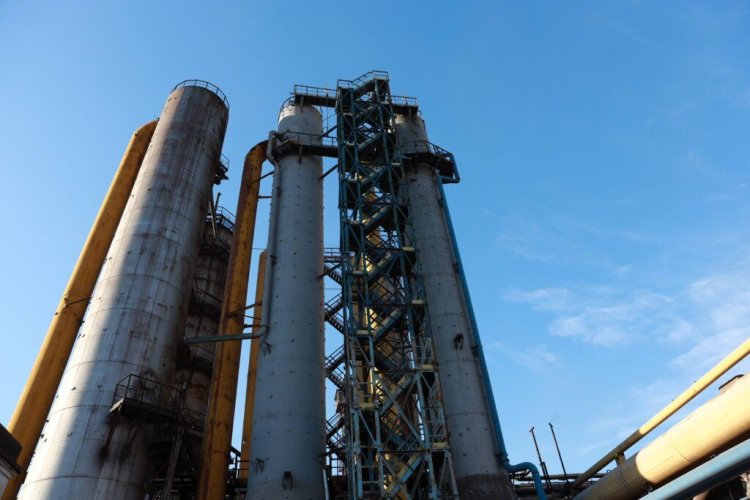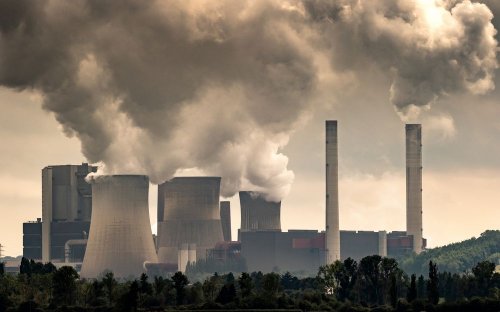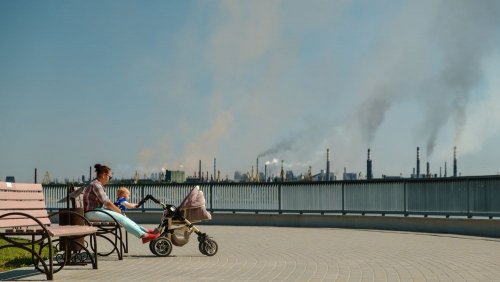Instead of polluting the air, it is reused as a source of energy. Thanks to modernization at the coke chemical production facility of PJSC ArcelorMittal Kryvyi Rih, the hydrogen sulfide content in coke oven gas has been brought into line with environmental standards.
According to the company, environmental measures were taken in the sulfur purification shop before the launch of coke oven battery No. 5.
"We have repaired the second stage equipment and are preparing to repair the first stage. It was decided that we would use them in production alternately – while one "thread" is working, the other is in reserve. Of course, we will also clean and inspect the equipment alternately," says Оlexander Matyash, head of the sulfur purification workshop at AMKR.
How it works
Technical sulfuric acid is a by-product of production. During the coke manufacturing process, coke oven gas is released, which contains hydrogen sulfide in addition to other chemical compounds. This combustible gas is dangerous to humans, so companies must prevent it from entering the air. At AMKR, the sulfur purification shop is responsible for this function.
The company also benefits from gas extraction. Here, it is reused as an energy source for the boiler room, in metallurgical production, and in the chemical and fertilizer divisions.
Work performed
AMKR expected an increase in coke oven gas volumes after the launch of the refurbished battery No. 5, so work was carried out on the equipment of the sulfur purification unit. In particular, on its technological stages, each of which can "remove" hydrogen sulfide from 100 cubic meters of coke oven gas. Four new refrigeration units were also installed in the workshop, which use water to reduce the temperature of the gas. In addition, a large-scale cleaning was carried out – for almost six months, the units and containers were cleaned of "sticky" coke oven gas compounds that could damage the equipment.
"The main thing is that in the process of cleaning coke oven gas from hydrogen sulfide, we were able to achieve an important environmental effect – we prevented hydrogen sulfide emissions into the environment, bringing the indicator below 0.5 g/m3, which is the norm," adds Oleksandr Matyash.
Earlier, EcoPolitic reported that due to an accident at AMKR Kryvyi Rih, the city was covered in "chemical" smoke, so the company compensated more than UAH 10 million for the damage caused to the environment.





